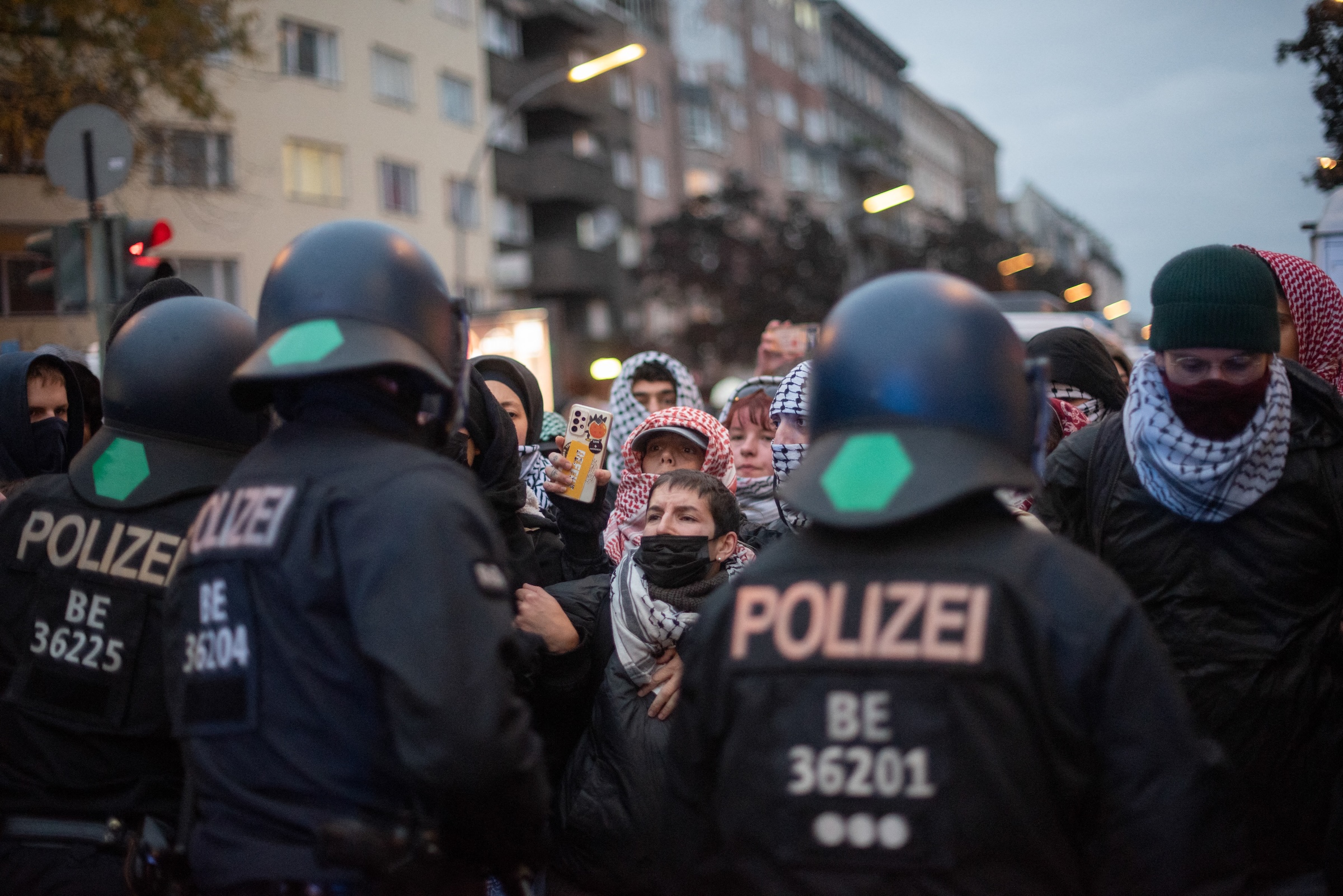American artist, curator, and author Fareed Armaly has declined the 2025 Käthe Kollwitz Prize from the Academy of the Arts (ADK) in Berlin, citing the “reactionary shift in official cultural policies” targeting advocates for Palestinian rights in Germany over the past several years.
In a statement, the Academy noted that the award cycle was suspended this year in light of Armaly’s rejection of the prize and linked to Armaly’s letter to ADK as well as ADK President Manos Tsangaris’s response.
Though he initially thanked the organization and its jurors for recognizing his practice, Armaly acknowledged in his letter that his selection for the award came at “a historically precarious moment, marked by a disturbing trend of censorship in Germany.”
“In such a context of intimidation, liberal cultural institutions appear to adopt complacency and self-censorship,” Armaly continued. “All this, consciously or unconsciously, structurally performs the ongoing dehumanization of Palestinians by obscuring and abstracting their agency and voice.”
Armaly, who is of Lebanese-Palestinian heritage, has lived and worked between Germany and the United States. He produces and collaborates on complex, experiential projects that bring dimension to his research in history and geography, architecture and design, and archaeology and language through the lens of Palestine and beyond.
As examples of the clamping down on advocacy for Palestine in the German arts and culture sector, Armaly cited the normalization of rescinded speaking and exhibition opportunities as well as awards for artists and scholars “with diverse solidarities and affiliations” despite open letters and vocal opposition to these forms of censorship.
The artist concluded that he is unable to align himself with “any institution operating under the current cultural policy framework of the German government,” and therefore had to decline the award in order to “maintain his voice as an artist.”
ADK President Tsangaris accepted Armaly’s decision “with respect and deep regret” in a letter, but responded that though the Academy accepts public funding through taxpayer money, it “is accountable to no one outside its membership, least of all to the federal government.”
Tsangaris underscored that ADK “actively oppose[s] all forms of censorship and self-censorship, including cancel culture, calls for boycotts and political influence,” and that Armaly would have been afforded the chance to freely discuss his views at the award ceremony and through the related exhibition contingent with the prize.
Käthe Kollwitz was known for her poignant depictions of war, hunger, and working-class struggle as well as her social advocacy. Inaugurated in 1960, her namesake prize is awarded annually through a juried panel to an individual artist in acknowledgment of a single piece or body of work. In addition to a €12,000 (~$12,400) cash prize, the ADK also organizes an exhibition and publishes a parallel catalog for the awarded artist.
Photographer Nan Goldin, conceptual artist Adrian Piper, and filmmaker Hito Steyerl are among the prize recipients of the last decade.

